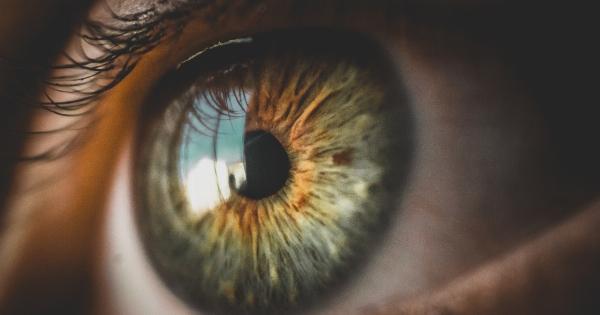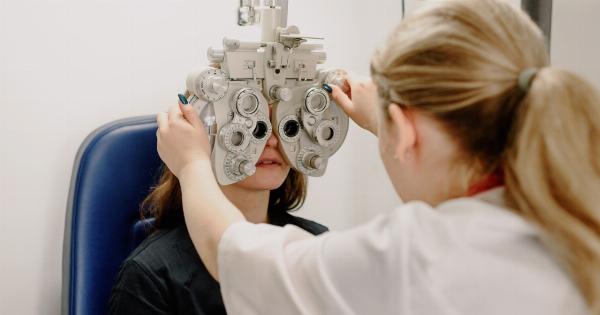Herpes zoster, commonly known as shingles, is a viral infection that causes a painful rash. It is caused by the reactivation of the varicella-zoster virus, which is the same virus that causes chickenpox.
Herpes zoster can affect any part of the body, including the eyes.
Eye infections caused by herpes zoster can be particularly serious, as they can lead to vision loss, and even blindness.
It is important to understand the link between herpes zoster and eye infections in order to prevent and treat these conditions effectively.
How Does Herpes Zoster Affect the Eyes?
Herpes zoster can affect the eyes in two ways:.
1. Ocular Herpes Zoster
Ocular herpes zoster is a type of herpes zoster that affects the eyes. It is caused by the reactivation of the varicella-zoster virus in the nerves that supply the eye. This can cause a range of eye problems, including:.
- Eye pain
- Redness of the eye
- Blurred vision
- Light sensitivity
- Swelling of the eyelids
- Eye discharge
- Conjunctivitis (pink eye)
Ocular herpes zoster can also lead to serious complications, such as:.
- Glaucoma (increased pressure in the eye)
- Cataracts (clouding of the eye’s lens)
- Retinal inflammation
- Corneal scarring
- Vision loss and blindness
2. Herpes Zoster Ophthalmicus
Herpes zoster ophthalmicus is a type of ocular herpes zoster that affects the eye and the skin around the eye. It is caused by the reactivation of the varicella-zoster virus in the nerves that supply the eye and the skin around it.
This can cause a range of eye problems, as well as a painful rash on the forehead and around the eye.
Herpes zoster ophthalmicus can lead to the same serious complications as ocular herpes zoster, as well as additional complications, such as:.
- Hutchinson’s sign: a rash on the tip of the nose, which indicates a higher risk of eye complications
- Scarring of the cornea
- Permanent vision loss
- Permanent facial weakness or paralysis
What are the Risk Factors for Herpes Zoster Eye Infections?
Anyone who has had chickenpox is at risk of developing herpes zoster later in life. The risk of developing herpes zoster eye infections is higher in people who:.
- Are over 50 years old
- Have weakened immune systems due to disease or medication
- Have had an organ transplant
- Are undergoing chemotherapy or radiation therapy for cancer
Preventing Herpes Zoster Eye Infections
The best way to prevent herpes zoster eye infections is to get vaccinated against the virus. The herpes zoster vaccine is recommended for people over 50 years old, even if they have had herpes zoster before.
The vaccine can reduce the risk of developing herpes zoster and the severity of the illness if it does occur.
Other ways to reduce the risk of herpes zoster and its complications include:.
- Staying healthy and managing chronic conditions
- Reducing stress
- Eating a healthy diet
- Getting enough sleep
Treating Herpes Zoster Eye Infections
If you think you may have herpes zoster eye infections, it is important to see a healthcare provider immediately. Treatment may include:.
- Antiviral medication to reduce the replication of the virus
- Corticosteroid eye drops to reduce inflammation and swelling
- Pain relief medication
- Artificial tears and cool compresses to relieve discomfort
- Prophylactic antibiotics to prevent secondary bacterial infection
In severe cases, hospitalization may be necessary for intravenous antiviral medication or surgical intervention to prevent vision loss or blindness.
Conclusion: Ignoring Herpes Zoster Eye Infections Can Lead to Vision Loss
Herpes zoster eye infections are a serious condition that can lead to vision loss and blindness if left untreated. Anyone who experiences the symptoms of ocular herpes zoster or herpes zoster ophthalmicus should seek immediate medical attention.
Prevention is key, and getting vaccinated against herpes zoster is the best way to reduce the risk of developing the condition. Managing stress and maintaining a healthy lifestyle can also reduce the risk of herpes zoster and its complications.





























